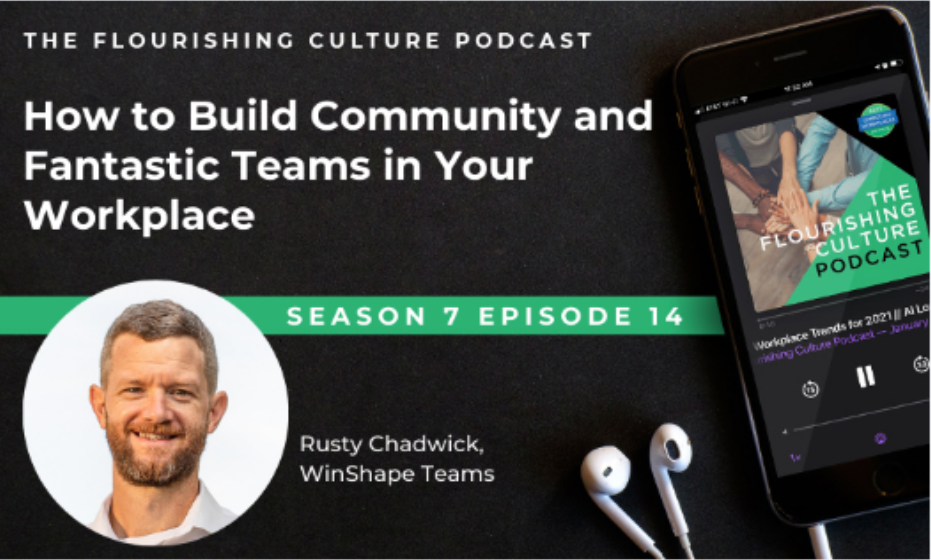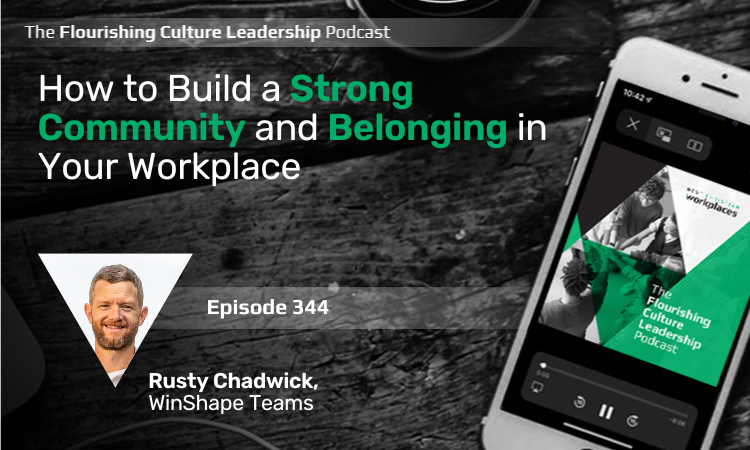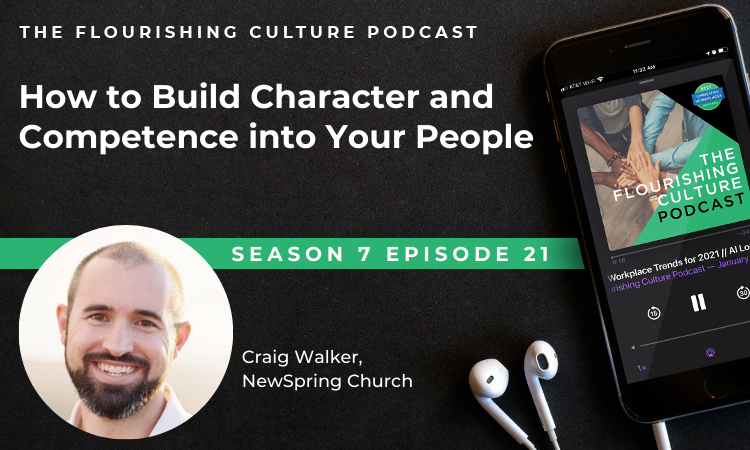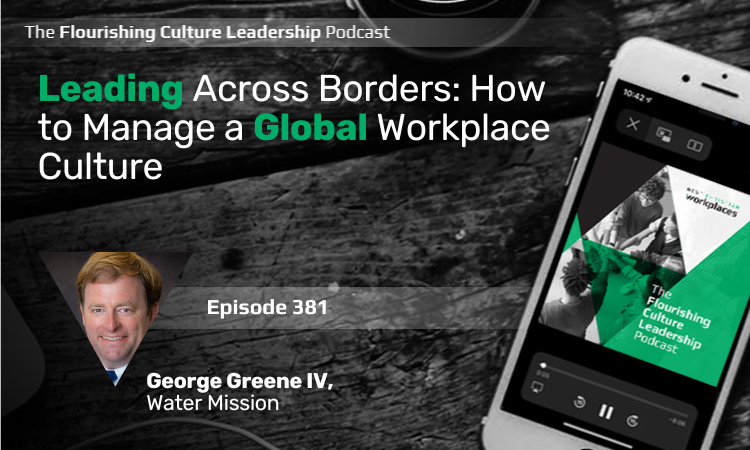Have you wondered if it would be helpful to invest in improving your team's effectiveness? Rusty Chadwick, Director of WinShape Teams, helps to uncover the transformational power of experiences and how they build community in the workplace. In addition to leading WinShape Teams, Rusty also speaks, writes, and creates development experiences for teams and leaders. Rusty understands the power of transformational experiences.
Listen to the Audio
Listen on Apple Podcasts | Listen on Stitcher Radio | Listen on Google Podcasts
In this episode:
- Rusty – you have an interesting career path. After college you spent several years as a guide and head wrangler at a guest ranch – how did that experience shape you and link to your subsequent work at WinShape Teams? (02:44)
- There are five different ministries that are a part of WinShape Foundation (03:39)
- "I learned the transformational power of experiences." (03:56)
- Through those experiences, they will have revelations, that when they add action to them, will change their lives (04:49)
- The importance of building community in the workplace (05:06)
- The impact of servant leadership (05:53)
- One of the factors of a flourishing workplace that we highlight at BCWI is Fantastic Teams. In the book Team Work, you and Russ Sarratt talk about clearly defining what a team is and what a team isn’t. Share some insight into what makes a real team, versus just a group or a department within an organization. (06:45)
- Small in number, complementary skills, common purpose, common goals, mutual accountability—things that set apart a group that will be a true team (07:38)
- "In a team, all of us win or none of us do." (07:52)
- "A team is not just a group of individuals working alongside each other in a common direction. But it's a group of people committed to a shared and common purpose working together toward that. If we're struggling none of us is reaching our goal."(08:01)
- In Christian organizations, we hear a lot about the important concept of servant leadership. You talk about 'servant teamsmanship' in your book – how is that different from servant leadership? And why is 'servant teamsmanship' important to flourishing? (09:20)
- Creating a healthy team takes intentionality and investment. You use the term “intentional retreating” to describe retreats and programming efforts. What does an intentional retreat experience look like and how does it build into the strength of a team? (11:20)
- It is very difficult to step back from the daily operations of our lives, especially in the workplace (11:47)
- Retreat as a team is a practice that allows us to step back as a team and focus on something (12:07)
- What about some other ways to build community and connection in a team? Are there some practices that teams can incorporate into their regular weekly or monthly rhythms that promote community – especially in these days when teams might be partially in person and partially online? (14:29)
- Five components of a strong community (15:16)
- A powerful purpose
- Time together
- sacrificial service
- challenging one another to grow and change
- celebrating and mourning together
- Monthly or quarterly community gatherings, invite families, choose service opportunities to do together, choose things you'll celebrate together (16:21)
- You challenge people to examine their own perspectives related to issues on a team. This reminds us of the warning on our rearview mirror: “Objects in the mirror are closer than they appear.” What are some examples of team members being “too close” to an issue? How do you encourage people to gain perspective? (20:28)
- We always have to be ready to respond to change in our work environments. Change can have a ripple effect, impacting more than just one team. The impact of change goes beyond business performance to also affect a team's outlook or motivation. As leaders, how do we help our teams respond to change in a healthy, productive way? (23:57)
- Model good self-care, personal quiet time, rest, exercise. Model that for your team and encourage them to develop those habits (24:37)
- Responding to change vs. reacting to change (25:45)
- Knowing the people on your team well (26:29)
- "Coach team members to focus on what will be gained rather than what will be lost. In the midst of change, our first thought is very often to think about what will be different, the things we're going to lose when this new reality is upon us." (27:02)
- We often focus on leaders and how they can set up their teams for success. In your book, you emphasize that this responsibility isn't just for the leader. What are some qualities and attitudes that every member of a team can embrace to contribute to a healthy work environment? (28:38)
- A team is strong and healthy when their purposes are accomplished, and their people are fulfilled (29:29)
- For team members to serve on their teams well they must be strong in personal excellence and sacrificial service (29:29)

Read the Transcript
Read a complete, word-for-word transcript of the episode.
FOLLOW OUR HOST
Follow our Host, Al Lopus, on LinkedIn & Twitter.
Email our host at info@workplaces.org
 Best Christian Workplaces
:
April, 04 2022
Best Christian Workplaces
:
April, 04 2022



